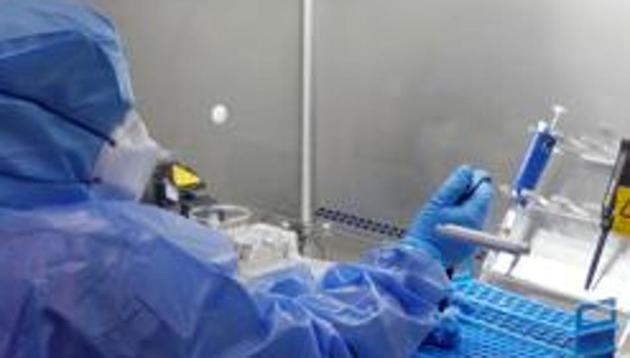Cured patients testing positive for Covid-19 again due to ‘harmless residual virus’
Most of these patients had gone for a test after completing treatment to check the virus load in their bodies.
“Residual virus” which can do no harm is responsible for at least at least 10 cases of patients testing positive for Covid-19 after being treated and cured in different hospitals in Uttar Pradesh, say experts.

Such patients had gone for a test after completing treatment to check the virus load in their bodies.
Sample this. A King George’s Medical University (KGMU) staffer, who completed treatment for Covid-19 got his test done again and the report was positive. His antibody test was also positive. A positive antibody report is confirmation that a person was infected in the past and has recovered from Covid-19.
“Initially, in his case, we got alarmed but when his Covid-19 test was done (yet again), it was negative,” said Prof Tulika Chandra, head of the department of transfusion medicine at KGMU.
She said at least 10 such cases came to light till now and there could be many more getting tested in private labs.
She explained, “After treatment, the RNA (ribonucleic acid) molecule remains in the body for some time, say another two weeks, and gradually goes out. If someone goes for a second test immediately after completing treatment, the test report will be positive but it is harmless for the person.”
That was what happened in the case of the KGMU staffer and in many other cases where patients were going for a test immediately after discharge from hospitals.
The Indian Council of Medical Research (ICMR) has issued guidelines that there is no need for a Covid-19 retest at least for the next three months (for recovered patients), said Prof Chandra.
“The guidelines from ICMR say once a person tests positive and is then treated for the infection, (the patient) should not get tested again before three months,” she said.
Asked how such patients got themselves tested again despite the guidelines, Prof Chandra replied, “Often patients do not say they have been tested and treated earlier. If they reveal their (previous) test, the medical staff will adhere to the guidelines, but if the patient does not say, the staff won’t know.”
Prof Chandra said people should themselves adhere to the guidelines, so that unnecessary testing load can be avoided.
“One can always consult a doctor if one feels there are symptoms even after treatment,” said Dr Sandeep Kapoor, director of Healthcity Hospital in Lucknow.
Meanwhile, the KGMU plasma bank has issued an email address plasmabankkgmu@gmail.com for those willing to donate plasma. Such people can contact the office directly or send an email, after which the medical staff will contact them and fix an appointment/visit.






